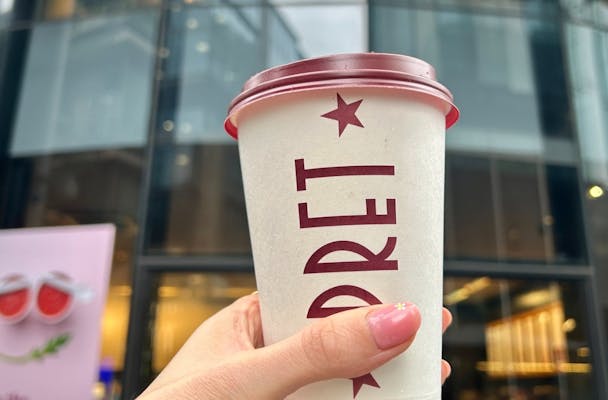When a whole latte love goes cold… why Pret might regret its loyalty program
Rapp’s Caroline Parkes reflects on the apparent struggles of Pret’s loyalty scheme that not so long ago seemed infallible.

/ Pret @ Facebook
The high street coffee and sandwich brand is hitting the headlines and stoking furious complaints on social media because of recent changes to its loyalty program.
Launched in September 2020, the scheme enticed customers back to its branches as offices did too, with the promise of water-cooler moments and bring your lockdown puppy to work incentives.
The dopamine effect of caffeine makes us feel momentarily better, and the launch of a new subscription model in coffee loyalty felt like a really good deal. When customers had to spend money again on commuting, at least they could save money on that human essential - coffee.
£20 a month for five coffees a day (oh, and 20% off posh pickle baguettes and other food) was a bargain.
Even for two days a week in the office, that’s less than a pound per cup, even if you have two coffees a day. Over time, the subscription price started to creep too.
Like Rishi Sunak’s trouser length, it went up and up from £20, then to £25, and more recently £30. At the same time, there were some very noticeable price increases on Pret’s food products, which customers pointed out on social media, equated to an extra 20% for non-members. So the 20% ‘saved’ is actually just nothing less than the original pricing…
But most horrifyingly, for its cost-of-coffee-crises crunched customers… it became ‘app only.’ Cue the complaints about poor app experience that, if those complainers were really honest with themselves, it would probably be more about how the program couldn’t be ‘gamed’ anymore.
Like Netflix, Pret has (quite rightly for its business) ensured that members can’t share their subscriptions. The five coffees a day can only be used by customers, and customers only, via an app tap – a move away from the simple ‘scan a QR code’ method that was used before and was easily shareable.
Pret is used to dealing with a sea of customer complaints – with the ASA having to step in to referee a row over the subscription ads in 2021 – but is now finding itself back in the thick of it, swimming in a froth of them.
Why?
People are, on average, a resistant-to-change bunch. It’s hard-wired into us. Human beings create certainty. Of course, some people thrive on the unknown and the new, but change is rarely perceived as good when it comes to loyalty programs and social media, especially in the UK.
Loyalty programs are loved by the Brits – with two in three saying that collecting loyalty points is part of their daily routine, and 68% see them as a way of saving money. So when beloved loyalty programs consider introducing changes, they’d be better aware of the value exchange and how to communicate changes properly. Else, incur Reddit wrath. Liberty has seen this recently, with its own change to a subscription model making it less valuable.
Brands who’ve done this more successfully include Boots. Boots could claim for years that its Advantage Card was the ‘most generous’ points program, with ‘four points in the pound’ (equating to four pence collected on every pound spent). In March 2023, it was cut to three points, but critically, this happened at the same time it introduced 10% saved on all Boots own brand products (which include BIG retail brands like Soltan and No7). The value exchange was still clear. And this this is what is critical for brands to really think through.
If it’s becoming more expensive, what’s getting better? Value doesn’t just have to come through price; other ‘value levers’ can be pulled on (at RAPP, we have a longitudinal study on Value Levers), which shows how they change in times of financial crisis. We also understand that different customers respond to different levers, often driven by personality type. Campaigners are more likely to be driven by messaging around what positive cultural change is being impacted, for example.
Pret, we’d be happy to share, just for when you’re thinking about your next change.

